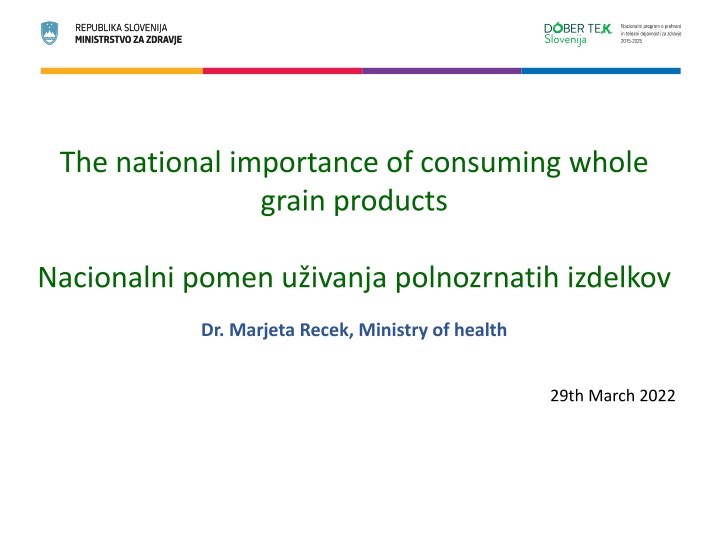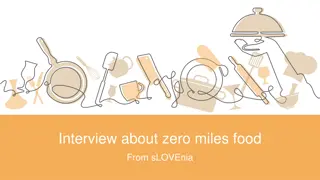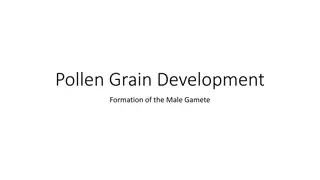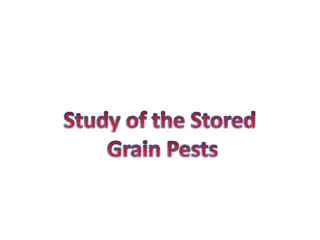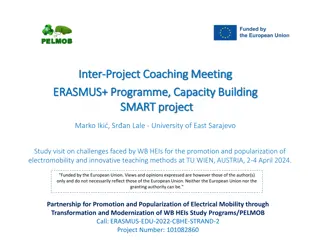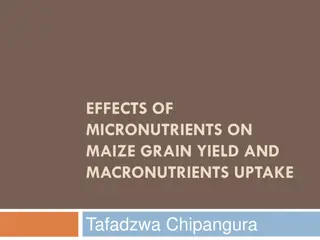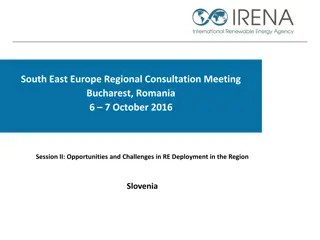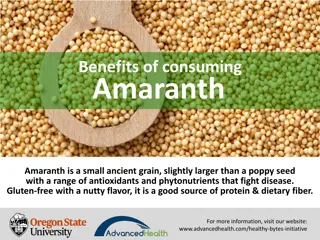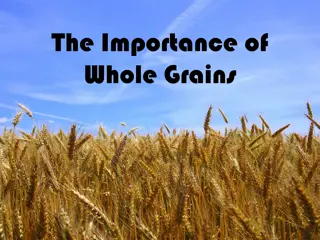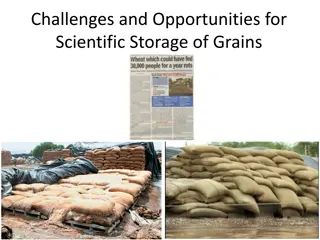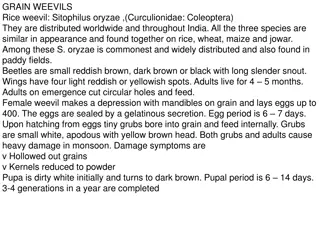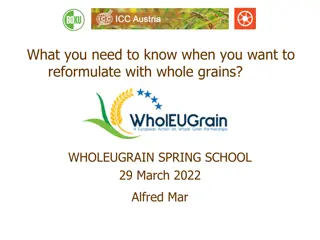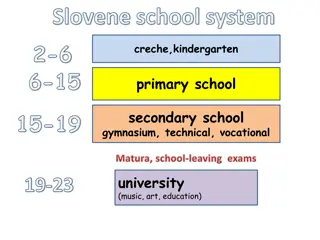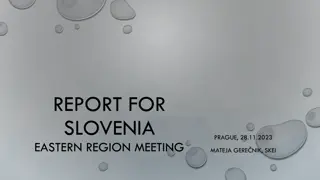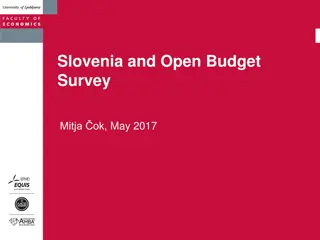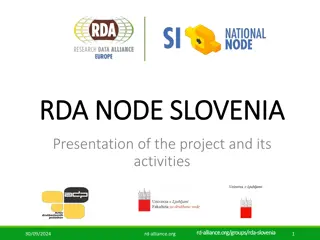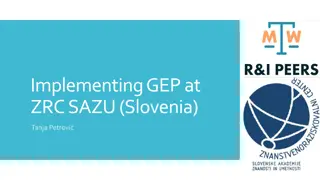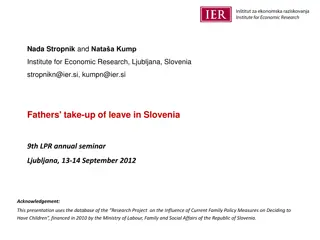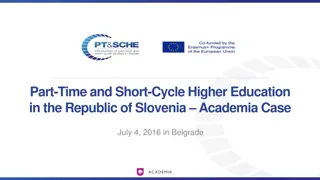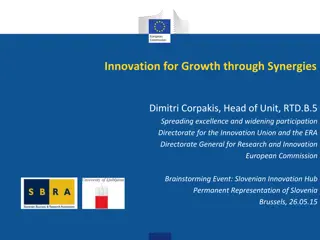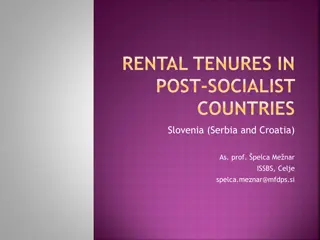National Importance of Consuming Whole Grain Products in Slovenia's Health Programme
Dr. Marjeta Recek from the Ministry of Health emphasizes the significance of consuming whole grain products in Slovenia's National Programme on Nutrition and Health. The program aims to empower individuals to make healthy choices, improve health, and enhance quality of life by promoting nutrition, sustainable practices, physical activity, and education. Priority areas include local food culture, sustainable production, tourism, and accessibility, emphasizing cooperation with sectors like health, education, and media to create a healthier environment. Strategies focus on promoting healthy choices in schools, intersectoral cooperation, and safe, locally-produced food options.
Download Presentation

Please find below an Image/Link to download the presentation.
The content on the website is provided AS IS for your information and personal use only. It may not be sold, licensed, or shared on other websites without obtaining consent from the author.If you encounter any issues during the download, it is possible that the publisher has removed the file from their server.
You are allowed to download the files provided on this website for personal or commercial use, subject to the condition that they are used lawfully. All files are the property of their respective owners.
The content on the website is provided AS IS for your information and personal use only. It may not be sold, licensed, or shared on other websites without obtaining consent from the author.
E N D
Presentation Transcript
The national importance of consuming whole grain products Nacionalni pomen u ivanja polnozrnatih izdelkov Dr. Marjeta Recek, Ministry of health 29th March 2022
National Programme on Nutrition and Health Enhancing Physical Activitiy 2015-2025 Vision = to create an environment that offers individuals healthy food choices and stimulates PA better health and quality of life
Overweight and obese 2019 woman men male
The The aim aim of of the the National National Programme Programme Empower people to be and stay healthy
Priority Priority areas areas Nutrition Sustainable Local (food culture) Recommendations Tourism and services Accessibility Food industry Physical activity EDUCATION AND AWARENESS
Key Key is in is in cooperation cooperation Local and sustainable food production Tourism (active, healthy and green) Spatial planning Health sector Education Sustainable mobility Sociale wellfare Mass media Sport
Strategy Strategy meets meets people people Role of health care workshops in Health care centers approach introduction of multidciplinary school of clinical nutrition
Strategy Strategy meets meets people people Healthy choices in schools Advertising to children on TV www.prehrana.si Verified food information portal
Intersectoral Intersectoral cooperation cooperation Zaveza odgovornosti Cooperation with the food industry and trade Safe, healthy and locally produced food Promoting the physical activity
Intersectoral Intersectoral cooperation cooperation Health-beneficial food products and industry participation Sugar reduction: beverages, dairy products, bakery pastries, Salt reduction: bakery Industry commitments regarding nutrients: Beverage sector (sugar), dairy (sugar), bakery sector (sugar, salt, WG)
Intersectoral cooperation Activities at retailers less sugar, less salt Activities at caterers the right choice practical catering training for student meals providers, updating dietary recommendations for student nutrition providers awarding The right choice symbol for nutritional balanced meal, increasing student awareness
Where Where are are we we today today? ? ACHIEVEMENTS Fruit and vegetables Breakfast Food quality Physical acitivity Overweight children
National National program: program: dietary dietary fiber fiber need to significantly increase a dietary intake of at least 30 g of dietary fiber per day. data from 2009: only 27% of the population occasionally eats wholemeal bread and 31% never.
The The impact impact of of dietary dietary fiber fiber on on health health The key sources of dietary fiber: vegetables and legumes, fruits, whole grains. beneficial effects on health; on digestion (colorectal cancer), reducing the risk of cardiovascular disease, type 2 diabetes.
National National data: data: dietary dietary fibre fibre research Si.Menu (2019): 90% of the population consumes less than the recommended 30 g of dietary fiber per day Average intakes were significantly lower - around 20 grams Since regular inclusion of foods based on whole grains in the daily diet contributes significantly to the dietary intake of fiber, the goal of the national program is obvious - to increase the offer and the consumption of wholegrain products.
Can a public private partnership help to increase WGs consumption? Is it possible to have such success as in Denmark in Slovenia too? A European Action on Whole Grain Partnerships - 3 years (nov. 2019) Objective - to transfer the Danish model of best practice for whole grain partnerships (WGP) with the aim of increasing consumption of whole grains and products.
home page of the national program home page of the national program, ,www.dobertekslovenija.si www.dobertekslovenija.si communication platform brand DOBER TEK Slovenia Information on programs and stakeholders
